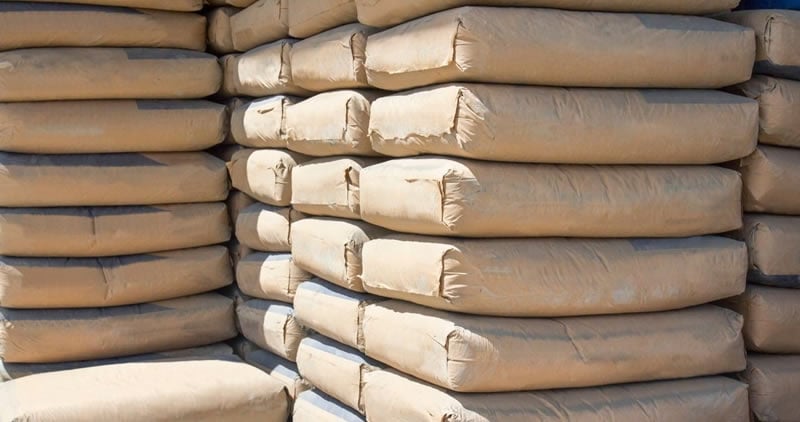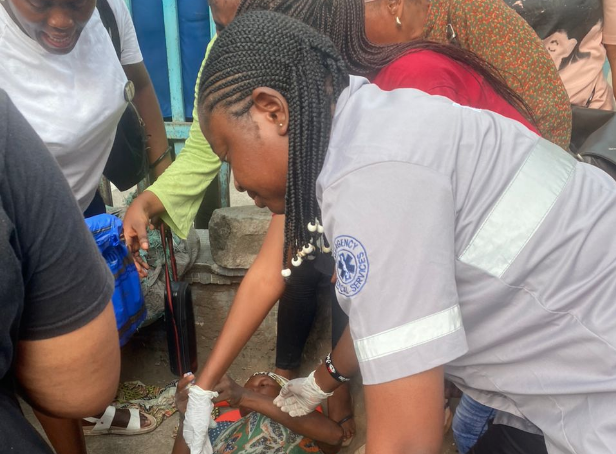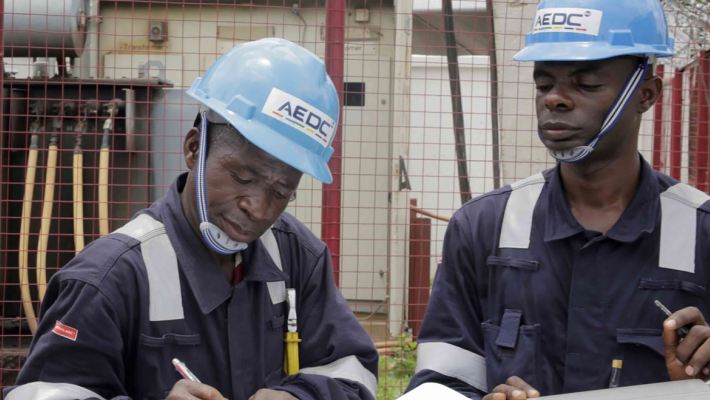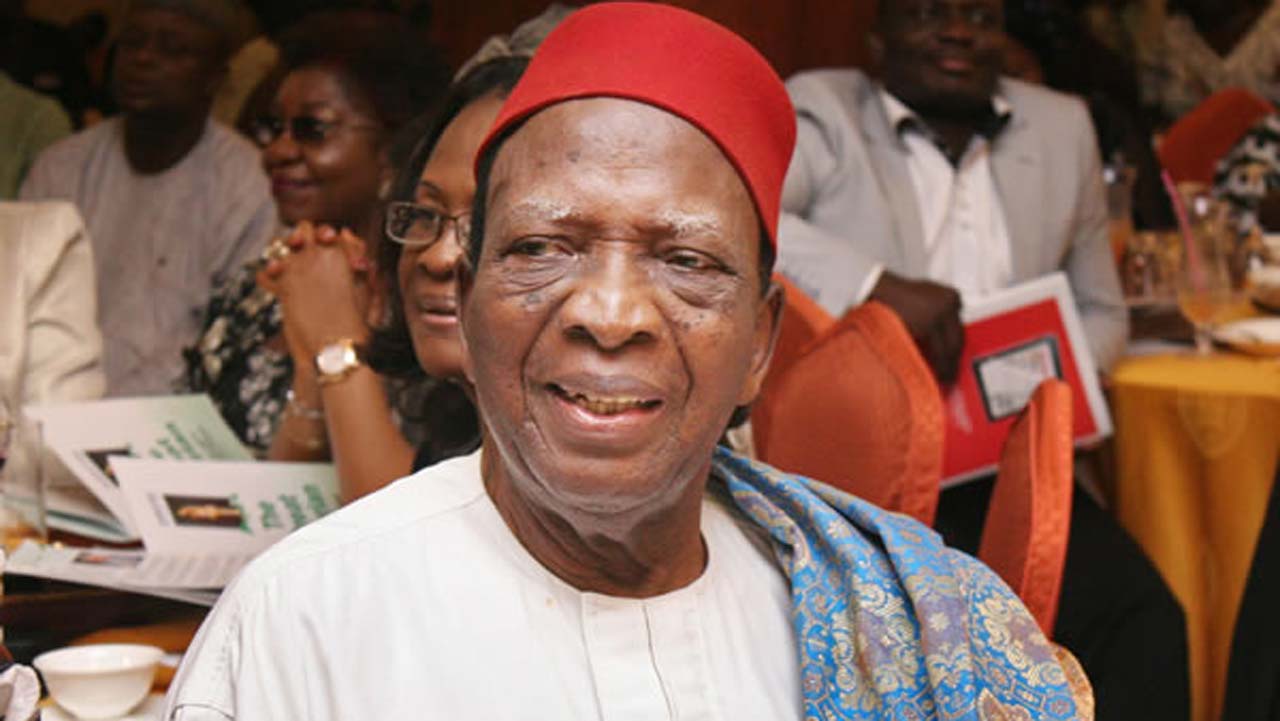Dozie: "Banking is changing and people are beginning to do certain things that banks do, so everybody can do a transaction.
Uzoma Dozie is one of Nigeria’s foremost leaders in the financial sector and the last group managing director of the defunct Diamond Bank. An experienced entrepreneur, economist, and technologist, Dozie has been at the vanguard of implementing large-scale technology solutions to drive sustainable economic reform in Africa’s financial services sector for over twenty years.
In 2019, Dozie launched Sparkle, a mobile-first platform for Nigeria’s retail sector, combining his vision for using technology to power financial inclusion at scale with his extensive background in retail and financial services.
Although he believes that Nigeria’s banking sector has achieved huge milestones, the financial advisor is of the view that a lack of trust in the system may hinder growth. According to the 2022 Edelman Trust Barometer, developed countries lacked economic optimism, signalled by distrust in central banks and financial services.
In this interview with TheCable’s DESMOND OKON, Dozie spoke on the importance of trust, collaboration in the banking sector, and other issues critical to accelerating growth and fostering confidence in the Nigerian banking sector.
Advertisement
TheCable: Given your experience in the industry, what do you see as the biggest issue in the banking sector, based on your assessment?
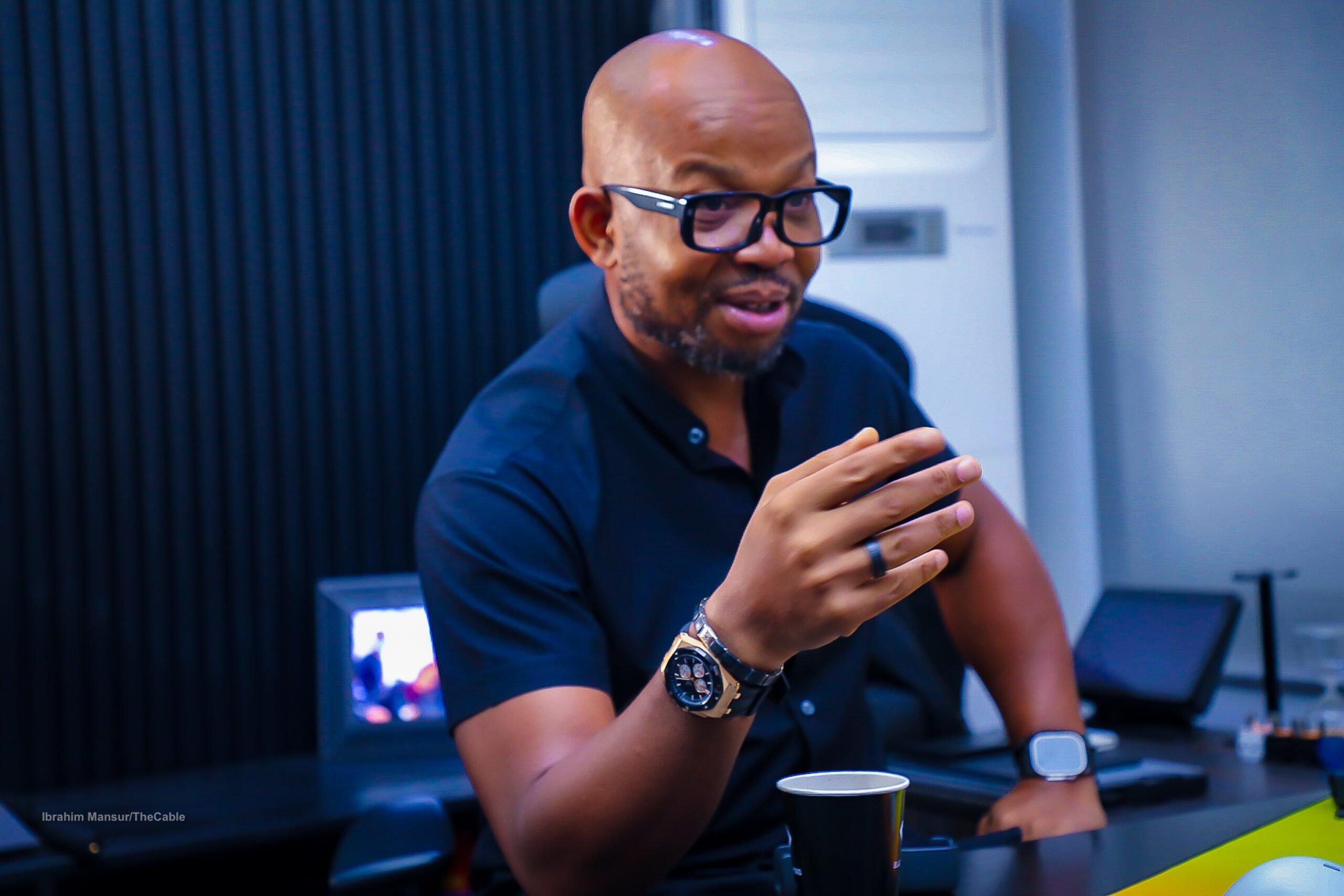
Dozie: Let me put it in two ways. I think the banking sector in Nigeria is actually very sophisticated, and we have done well, especially on the retail side, compared to other parts of the world. I don’t think we sell our story well. One of the reasons why mobile money succeeded in Nigeria is because NIBSS provided the platform that allowed immediate value for people who wanted to transfer money.
But my biggest wish is that we need more collaboration and coordination in the ecosystem with all the stakeholders to fortify the system from a trust perspective. Today, technology has completely changed the way banking is done, but we have legislation on regulation that predates that. And so, we haven’t fully taken advantage of what technology can do because if we don’t enable that infrastructure, you won’t get that digital penetration. You won’t get the leverage of the investment that we have made, and that is why I think people think that Nairobi and Kenya are the bedrock of fintech. They are not. It is actually in Nigeria.
Advertisement
We have invested more, but we haven’t scaled it from a product and a penetration perspective, and if we do that, you can see the impact. You only have to look at companies that have done that: MTN. You can see the impact that they have made. Look at the revenues, and that is because once you can provide a service (and that’s what technology does) at a point that people can pay for, understand, and use, then you’ll see success. I think that is what we need to do.
But we need to look at the building blocks, especially when you look at the context: 100 million people are below the poverty line. You have 200 million people. So, financial inclusion is not the first challenge. The first one is identity; know your people. The second one is social inclusion, and the third one, financial inclusion, will come.
What I mean by identity is that everybody has their own identity. It has to be a digital identity, and we can just borrow from what India is doing. I believe that the minister of digital economy is looking at digital public infrastructure to help us drive that. But our promise is different. So, we have to look at the technology and customise it for our play. Once you’ve done that, how do you include people in your society? I believe there are two types of roads now, and there’s the physical road. But we have to start building digital roads — internet availability, but also devices that people can afford even at the lowest level.
Once you have an identity and a device, that means if you are poor, I can now directly provide you with your social benefits as a government, knowing that there won’t be any ghosts. And there will be reasons to be socially included, and from there comes financial inclusion. That is where we need to get to. But we need the private and public sectors and the right leader who understands the problem and what technology can do.
Advertisement
TheCable: So, your company started operations in 2019. Then, a year later, COVID-19 struck. How did you cope during that period?
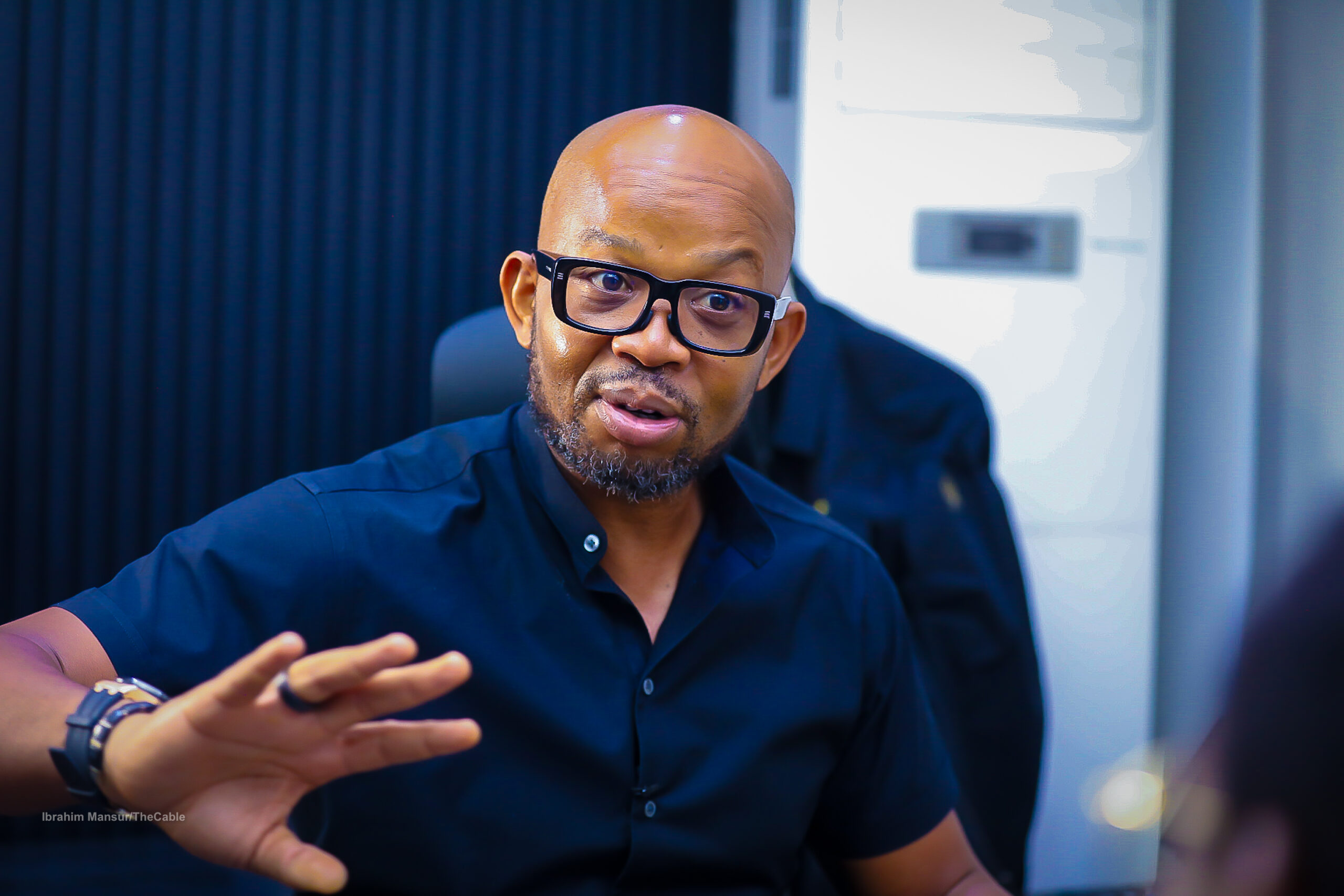
Dozie: COVID is a testament to our belief in our strategy because, when we started, we were building a platform in 2019, getting the licences, and deploying people. Then, we were about to launch in the first quarter of 2020 and COVID was lurking around and people were wearing masks. And then a lockdown. But Sparkle was built on the cloud; so, everything is cloud-based. Our biggest concern was the people. Where are our people?
First of all, they were not working in the office anymore. They were working from their houses. So, one, making sure they were healthy. Secondly, making sure they had remote working capabilities. We were already working with laptops, so we were making sure they had internet access. That was the biggest challenge — making sure that they were okay. When you have nothing to do and you’re on lockdown, what do you do? You work. So, everybody was working, and collaborating. We were having meetings at different times of the day. So, that made it quite fun. We were still building, so we didn’t get as many customers as we wanted.
But what the COVID lockdown did was create more awareness than there already was. So, people now had to use mobile options for transactions, and Zoom for meetings. So, what you got was from awareness to appreciation of technology: how technology can change and reduce cost and can make you more productive, and adoption became higher.
Advertisement
So, for us, that whole process, first of all, allowed us to focus, reduce our marketing spending in terms of educating people about the benefits, and then adoption would be easier to sell. So, that’s the actual experience. So, it was a very interesting period. But we’re five years old this year, and when I think of the people that we started with, a lot of them have gone.
TheCable: You spoke about trust in your assessment of the banking industry, and you believe there’s a trust deficit between Nigerians and financial institutions. How so?
Advertisement
Dozie: I think trust is confusion. Trust is not knowing. Trust is uncertainty; one, because of basic transactions. Today, if you go to a bank, cash is cash. I want to pay you electronically, but the network is down, so you don’t get value and you have to wait. That’s uncertainty. Those things affect trust. The second one is that if I’m moving money from Sparkle to another bank, you never know if there’s a breakdown or if the money hasn’t arrived. Is it from Sparkle’s end? Is it from the other bank’s end? There’s uncertainty. Then, of course, there’s the good-old big elephant in the room — fraud. Heavy, massive fraud is going on everywhere.
Advertisement
And it is costing everybody. But you know, everyone thinks that digital is not safe, but really, what has happened is that everybody has moved to the cloud, including criminals. You don’t hear that armed robbers went and attacked a bank. There’s no money in the bank, so everybody has moved in. Then the fourth one is education. I’ve been doing my banking this way, and you want me to move. Who’s going to help me? Who’s going to show me? In what language? So, if you say you want to take it down to the masses, what languages are you using to do that? Who are the advocates that are actually helping, hand-holding people to actually achieve that?
Banking is changing and people are beginning to do certain things that banks do; so everybody can do a transaction. Even supermarkets in the UK were getting banking licenses, but they’re now giving them back. So, the difference between banking and anything else is that it is a store of value. It is where you keep your money for safety because you have gotten a licence.
Advertisement
Other people have licences to do transactions—to send money from point A to point B. But if the money gets lost, then there is a problem. Storing people’s money is an art. Lending and managing risk are banking capabilities that you must understand. When there is confusion, there is a lack of trust. When there is uncertainty, you don’t know enough, and there’s a lack of trust. When you don’t understand, there is a lack of trust. And when you are uncertain about who the players are and you don’t know, there’s a lack of trust.
So, for Sparkle, we are trying to create an ecosystem, a safe haven, by making sure that the people, our customers, are who they say they are. So, from the beginning, when we started, if you didn’t have a BVN, sorry, we couldn’t bank you. And then, when NIN was mandated, we now have NIN. We’re even going to a third extent. There is governance, regulation, and self-regulation; if you believe that the minimum regulation is not enough for you, then you go to a third one.
So, we’re also investing in more technology to check even the identity, especially now that you see deep fakes and people are using technology to commit crimes. You need to have new technology to fortify your environment beyond that. In the end, banking is about keeping people’s money safe, and if my money is safe and if transactions go from one point to another, I’m certain that this is what happens. That’s how we want to build trust.
The third part is that we are now working with other players in the market and with the industry. So, I think one of our roles at Sparkle is also to advocate for or make sure that we collaborate and coordinate so that the competitive environment is conducive, or else we will all lose.
TheCable: You’ve mentioned the adoption of technology, and collaboration as the things you think could help build trust in the sector. What role does the government have in all of this?
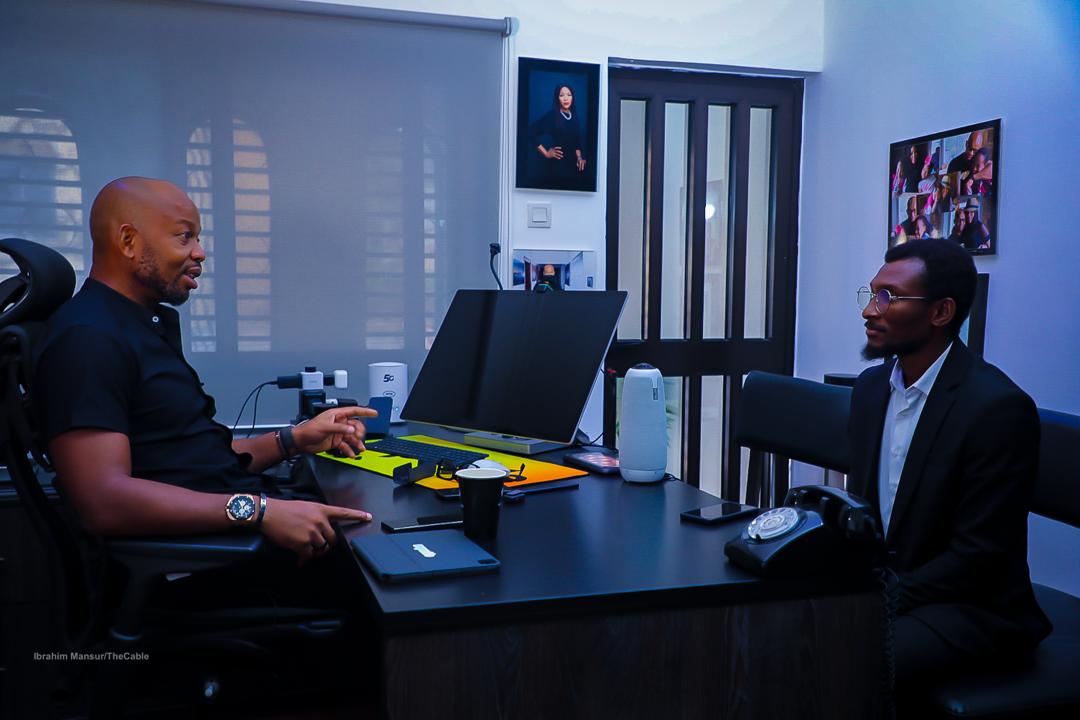
Dozie: I always look at things in context. The government, the regulator, has come out with a few policies to also facilitate and drive it. They came out with KYC to reduce the cost of onboarding customers. They’ve actually now said, okay, because of the spate of crime, the minimum KYC level one must have is BVN, which is a good thing.
Secondly, they came out with open banking and sandboxes to encourage fintechs to test their solutions in a live environment, and they came out with e-Naira as well. They have done quite a few things. Don’t forget, the banks work with NIBSS. NIBSS also, in collaboration with all the players, came out with contactless payment. For me, when somebody tells me that they are digital, my yardstick for digital is paperless, cashless, and contactless.
All these things cannot be done in silos. They have to coordinate with other arms of government. They have to coordinate with all the stakeholders and the private sector. We have invested a lot of resources, but we haven’t scaled. If we’re going to leverage technology, we need people who understand the Nigerian market because our story is different, so we are going to design for Nigerians.
So, even things like security are important in ensuring that the investment that we have made to get people into the digital economy is not wasted or is not costing us too much. But right now, it is costing us too much because the dollar is going up. Some of our expenses are in dollars, so my costs can go up by 20 percent without doing anything.
TheCable: How is the naira float policy of the government affecting fintechs?
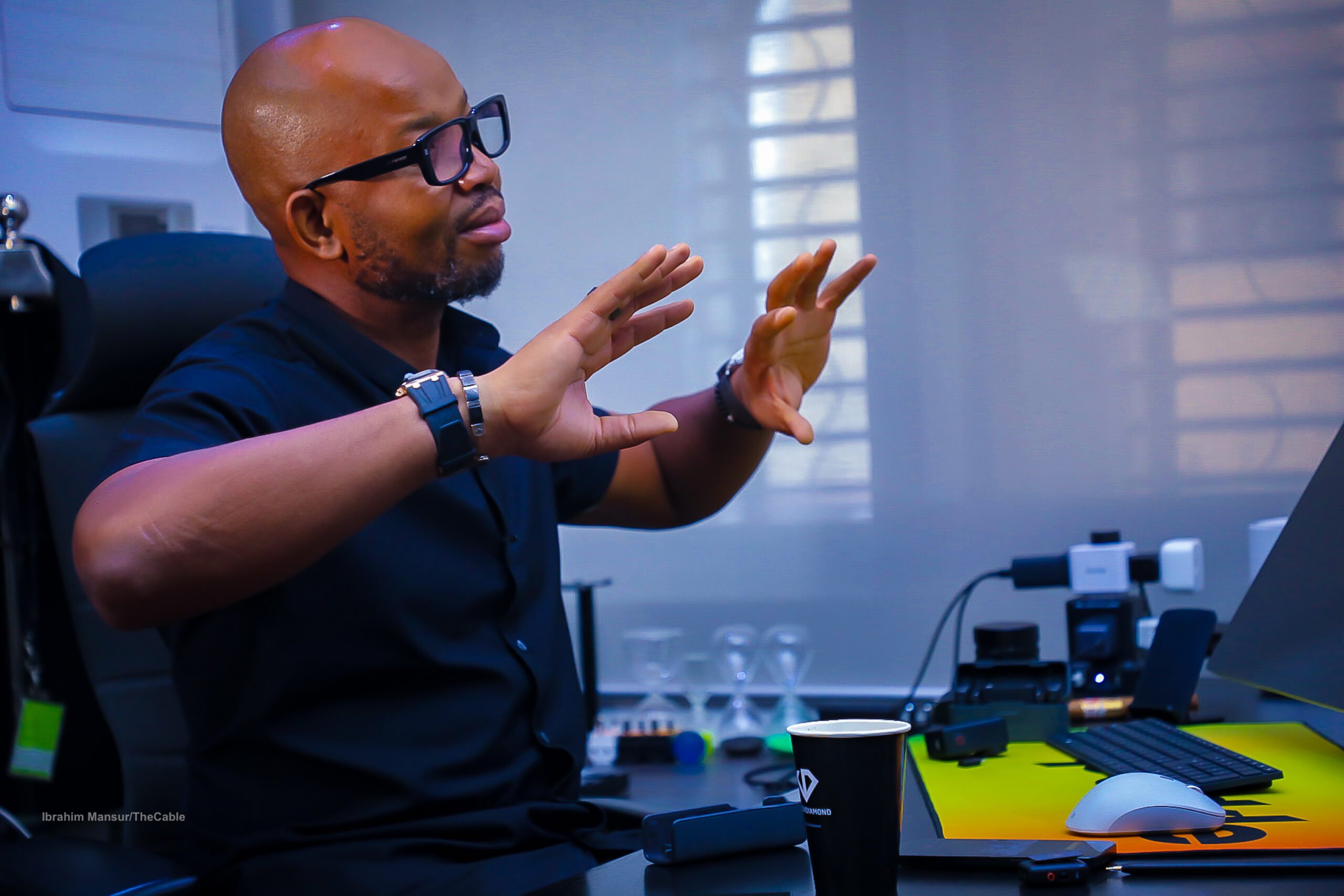
Dozie: It will affect us because of the third-party partnerships that provide us with services like cloud services. Cloud services are based on dollars. So, it affects us. But for us, that is a small portion of our total cost. But if the naira goes by 100 percent, what was five percent now comes to 10 percent. So, if five percent of my cost is in dollars but I’m using naira and then it doubles and goes up by 100 percent, that five percent might go to 10 percent. So, that might double.
Knowing that our income is going to be naira, we’re very deliberate about who our partners are. Where we have no choice, we pay dollars. One hundred percent of our staff are naira-based, and we pay for everything in naira. But laptops are imported, so those are going to go up in price as the naira devalues.
I think we only have 40 people that work at Sparkle. So, those are just minimal costs. We use technology for everything. We use Chat GPT as an assistant. So, it is just about using technology intelligently and knowing what to invest in and what not to invest in.
TheCable: In 2019, Nigerian fintech startups attracted venture capital (VC) investment worth $747 million, representing 37% of funding in Africa. Between 2021 and 2022, we heard many fintech companies announce various funding deals. In 2023, the announcement began to ebb. We barely heard anything. Comparing that time to now, what is happening with funding? Are VCs becoming more cautious?
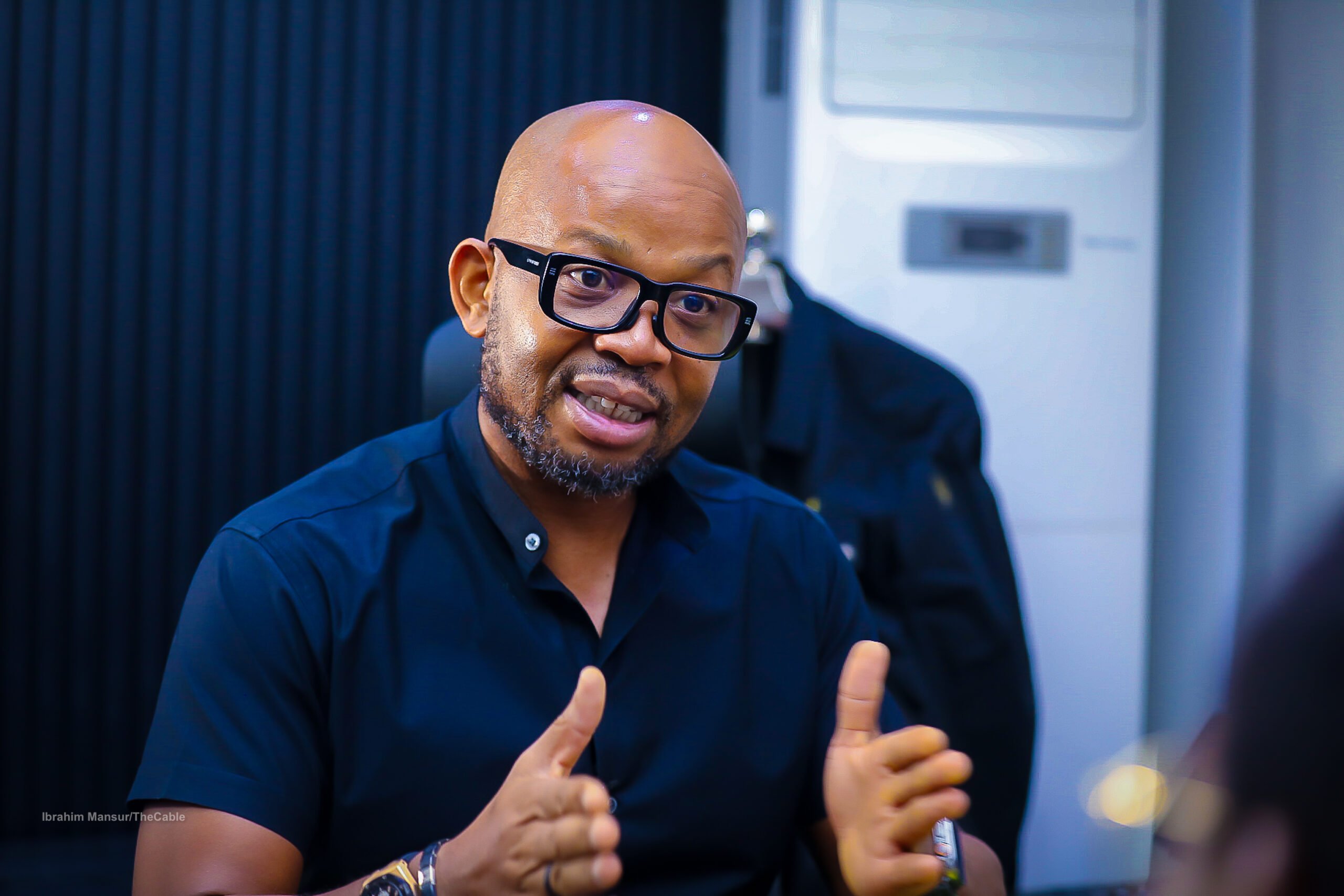
Dozie: I think the industry is maturing. When I started banking, we had around 200 financial institutions in the banking system in 1991 — new-generation banks like Guarantee Trust, Zenith, Diamond Bank—and you had all kinds of other players, and money was just being pumped into that space because that was the new gold rush.
After a couple of years, the standards that people were looking at and the metrics changed. So, people started asking questions. Where is the money? How much are you spending? Then you begin to see consolidation, people going out of business, and crashes everywhere.
Coming out of COVID, there was a lot of liquidity, with the government printing money, especially in America. These were funds looking for yields and opportunities. So, it was, ‘what’s your value proposition?’ ‘What do you want to do?’ Then they met with 200 million Nigerians, and people were also looking at things like the Amazon model, where they will tell you that they are not going to make more profit in the next five years, but they have XYZ thousands of customers.
So, people were looking at the wrong metrics—the number of customers and the number of transactions—which is part of the problem that we have because if you know that funding is going to depend on your acquisition and the number of transactions, standards are going to drop.
When standards drop, you are now inviting a lot of sleeper opportunities for fraud when it comes. Then you see a lot of spending. Like I said earlier, in banking or financial services, if you are going to make money, it is very simple. Interest income, how much are you charging? So, you see a lot of people spending money on marketing, advertising, acquiring customers, and giving them heavy discounts, and you are also expected to have a high staff strength.
The question is: Where is the path to profitability? And for you, it is like; ‘it’s going to come eventually, as long as this customer base is growing, we are going to get funding’, until it dries up, then problems start.
TheCable: So, what do you think is the solution here because funding for fintech is clearly dwindling?
Dozie: I would say that if you have a purpose… you are a fintech, okay, but what are you doing? Good stories and good business solutions will always find money. Before, just open your business and say ‘I’m a fintech’, you’ll find the money.
Whether you were going to succeed or not, that was just spread-betting. But if you want to start a bank today, they will ask you questions before you even find investors. They tell you what you are doing that a top tier-one bank is not doing, a top tier-two bank is not doing, or this digital bank is not doing, or this fintech is not doing. That’s what people are going to ask you. It’s going to be difficult as well.
TheCable: So, basically, fintechs with good stories will find money?
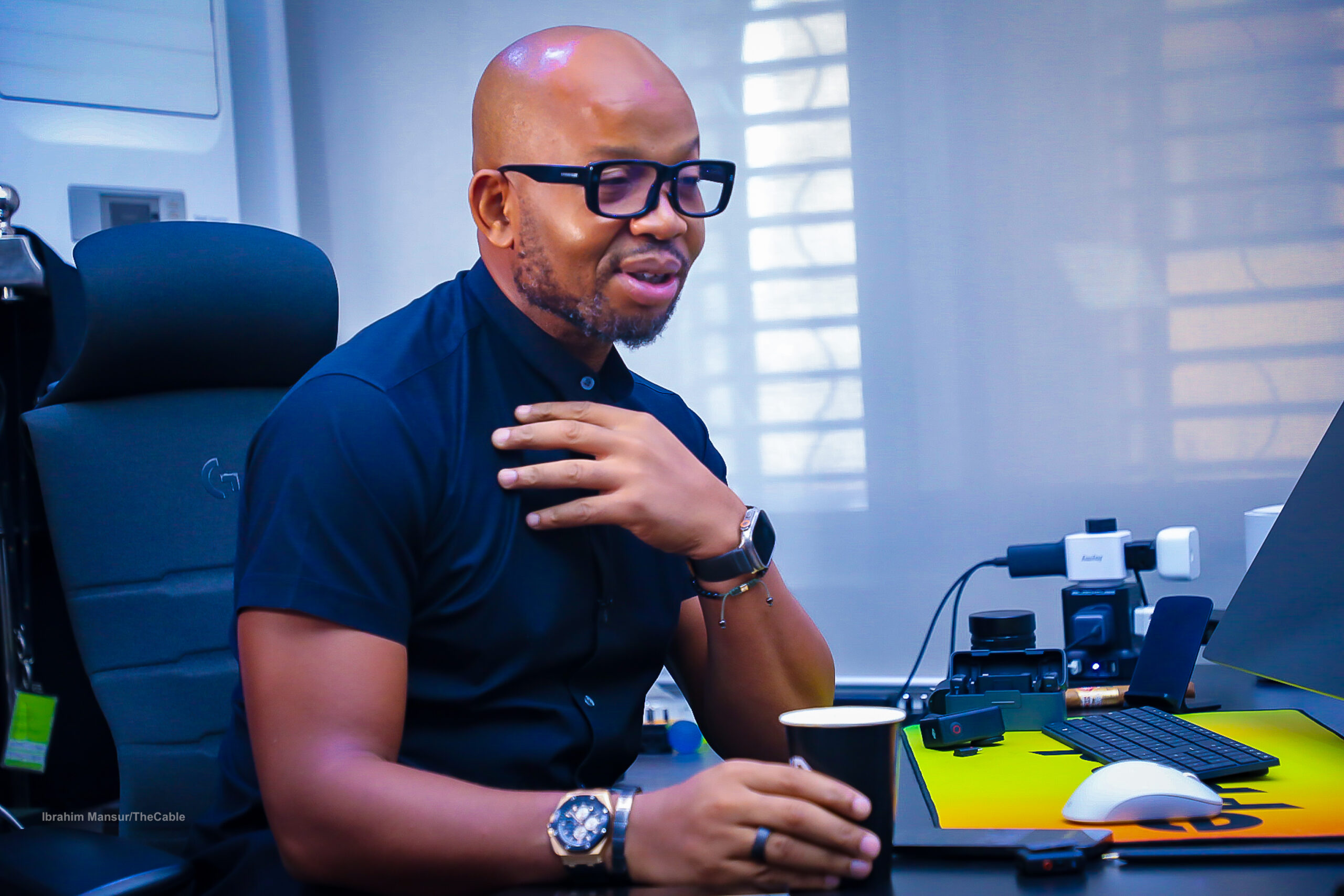
Dozie: It’s like you, a journalist, good stories will not drop in your laps. You have to go and find those good stories. So, fintechs have to go and find or be found. So they are going to have to operate differently. They have to tell a different story. We are raising money now; my story is not about how many customers I have. My story is about the platform that I’m building. I’m building a platform that is going to compete with traditional banks and that will provide full banking services, not just move money. I’m not doing transactions. I’m doing a full suite of banking services, and we’re going to put more capital into the organisation. We are going to have state-of-the-art automation and invest in artificial intelligence because that is the future for better customer experience and everything.
So that’s a different story. It’s not that I’m going to get two million customers tomorrow. I’m going to get two million customers, but they’re going to be very profitable. So, I’m using good old traditional metrics that people want to see. It might take longer, and it might be boring, but we’ll find the right people.
TheCable: Why don’t fintechs in Nigeria disclose or publish their financials like traditional banks? Do you think this could help reduce the trust deficit and ultimately attract more investment into the space?
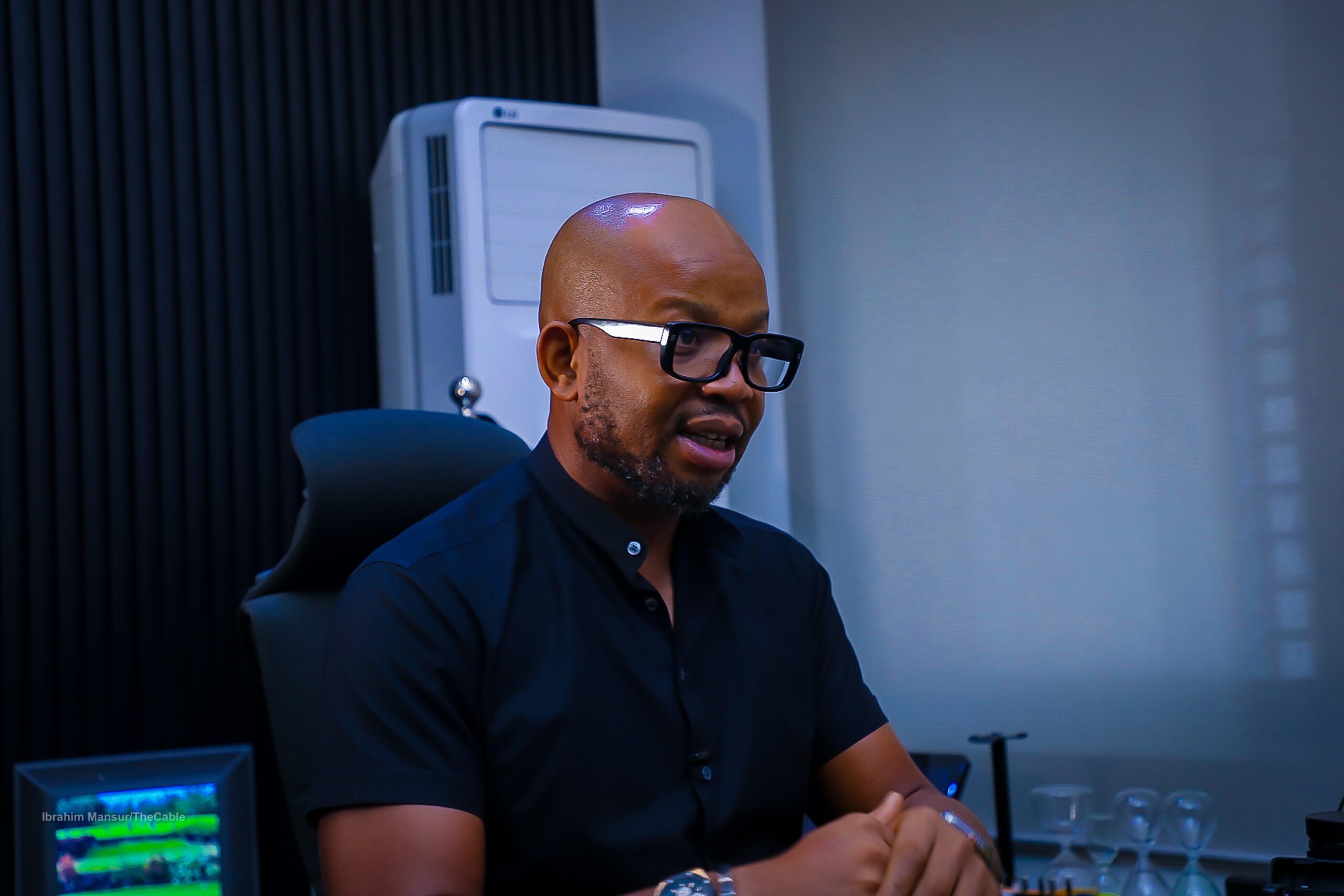
Dozie: Of course, the more transparent you are, there is more trust, and there’s more betting. But most of these banks, all banks in Nigeria, are publicly quoted, and so they have a responsibility to do so. It’s competition, but what fintech should do… For us, we are not going to do it publicly; we’re going to give it to our investors. We’re finalising our fourth quarter numbers for our customers.
People don’t see that these reports are also two ways: you’re giving information and also using it as an opportunity to ask for support from people as well. And that is the way we see that. So, I tell you what is going on; you invest the money, and then I say that these are the things that we’re looking for.
We were very deliberate about who invested in Sparkle, especially in our third round. We wanted people who are Nigerians and influential in the Nigerian space. Sometimes, it’s not just money that helps you, but access to networks, access to markets, and access to support that make the difference between VCs money and Nigerians’ money that knows the industry. They can open doors.
TheCable: The CBN probe panel recently published some very damaging reports about the bank. What are your thoughts about this? Do you think it’s going to further strain our international standing considering that Nigeria is still on the grey list of the Financial Action Task Force (FATF)?
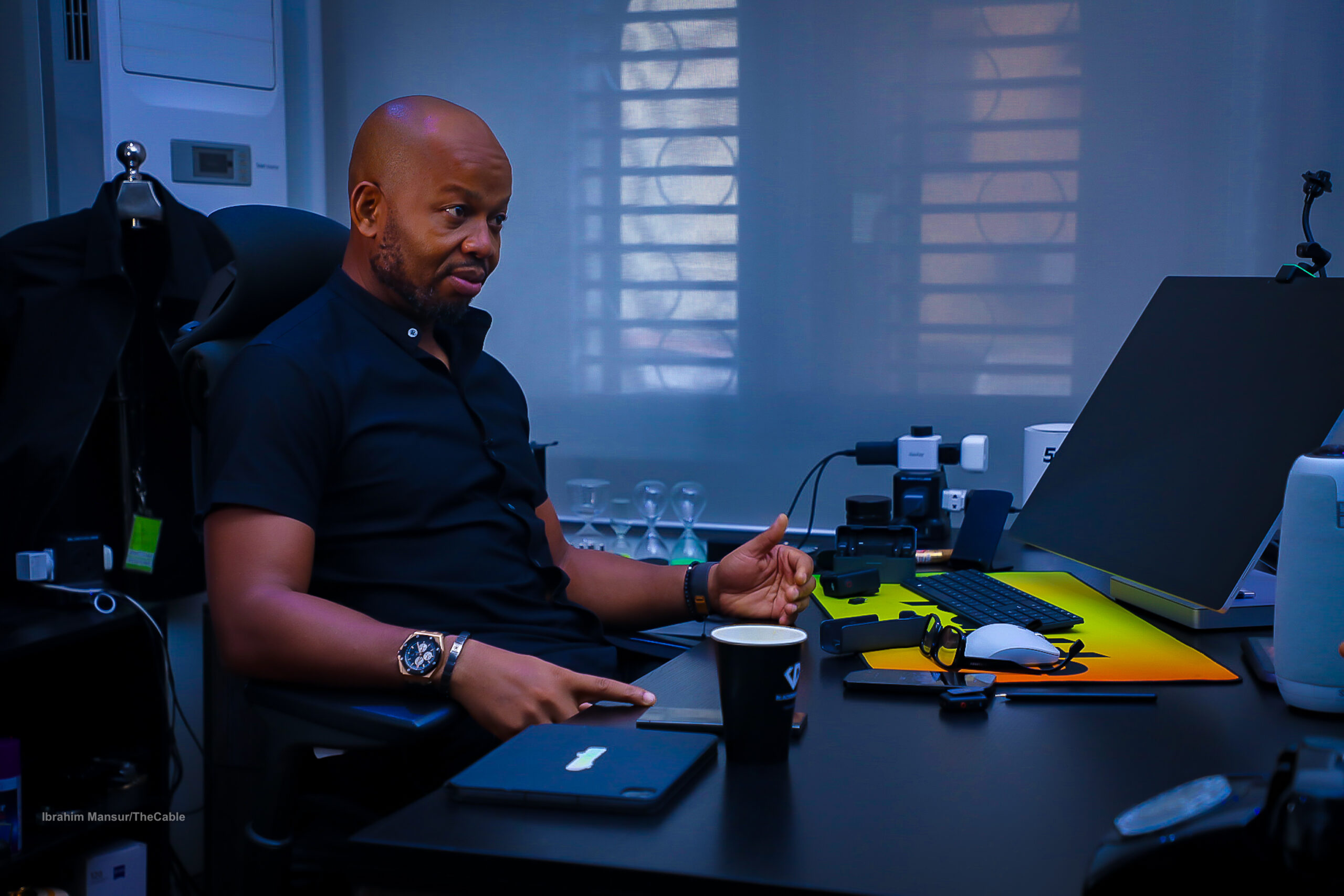
Dozie: I don’t think so. Nothing came out of there that surprised anybody who didn’t know. But now that it is out, there is transparency. So, it’s like we have a reset. So, it now gives this new administration, especially the ones who are at the helm of affairs of CBN, an opportunity because Nigeria is still a great opportunity. Nigeria will always get help, but how much help?
If somebody wants to borrow money from a bank, some people will hide certain bits of information, they are actually doing themselves harm because sometimes, lending you too much will cause problems in the end, and lending you too little will also cause problems. But once I know your situation, then my job is to help you and that’s what Nigeria has done.
They said, okay, ‘this is the situation. It sucks’. Very good. Now I know. So, I know how much support I can give you or not give you. That’s one of the problems that happens during fundraising. You just wake up, and you see 10 million (from VCs) in your business. That 10 million is for the next three or four years.
A lot of fintechs raise money, but some of that money is not for one or two years but for three to four. But if you blow it in one year, you run into problems. I know how much we’ve actually invested judiciously over a four-year period. That has been some people’s OpEx (operating expenses) in one year, and I’m thinking, please, what are you doing because, apart from the heavy marketing spend, what does your solution have that mine doesn’t have?
TheCable: What is your take on the recent directive by the Nigeria Inter-Bank Settlement System (NIBSS) banks to delist non-deposit payment service providers from the instant payment (NIP) outward transfer channels?
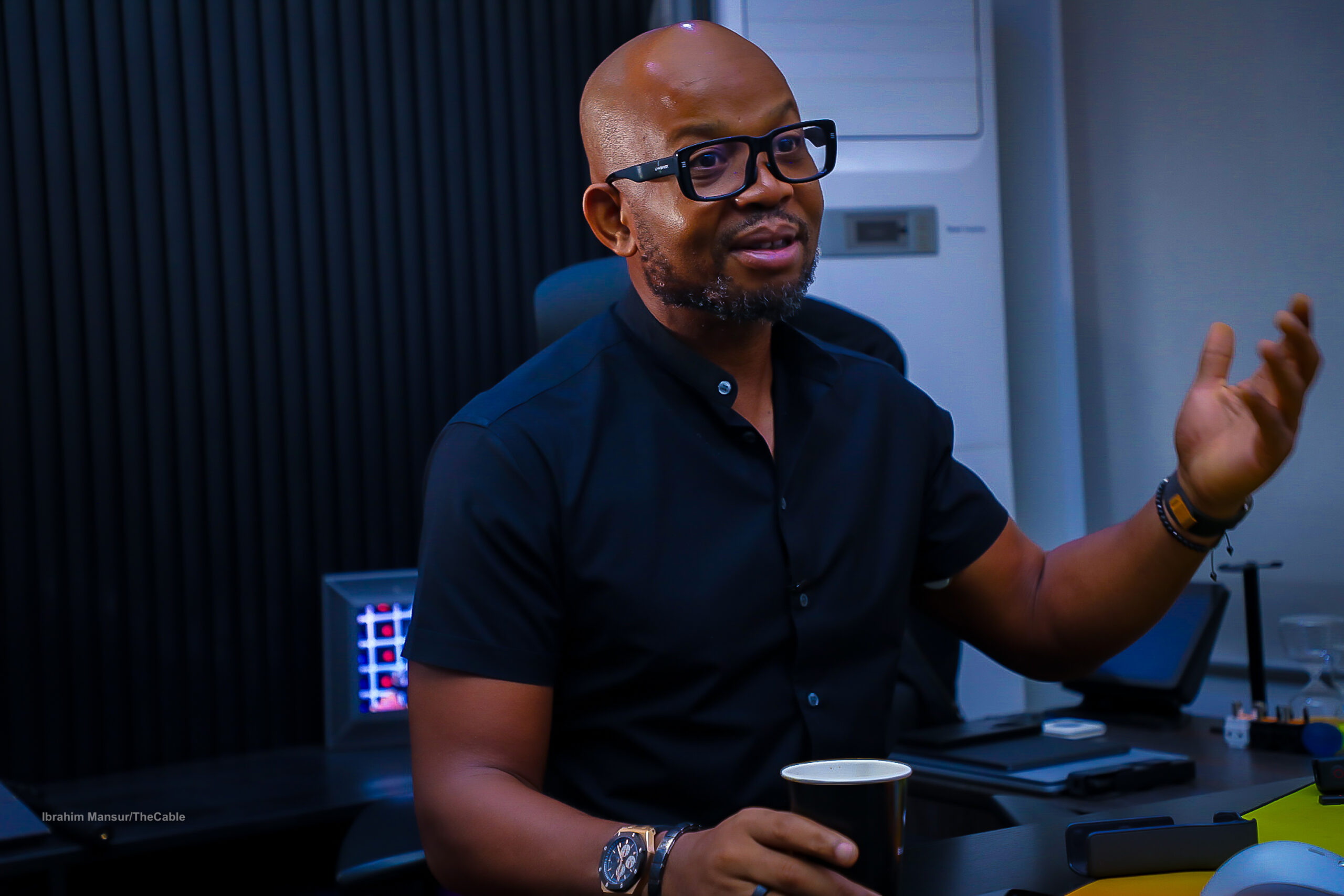
Dozie: It’s too early to tell. But I think that was a good move as well because you are only as strong as your weakest link. That’s what I’ll say to that. I think if you’re going to be connected to a system, the network where money—customers’ money, customer deposits—moves from point A to point B, they should go beyond just getting your licence. You must have had certain certifications because you have all kinds of players. You have Tier 1—different types of institutions. There can be diversity, but let there be a common standard—a minimum standard of operation.
Photos: Ibrahim Mansur/TheCable


